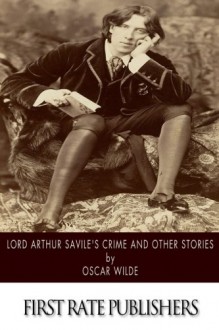Lord Arthur Savile's Crime and Other Stories
Oscar Wilde (16 October 1854 - 30 November 1900) was an extremely popular Irish writer and poet who wrote in different forms throughout his career and became one of London's most popular playwrights in the early 1890s. Today he is remembered for his epigrams, plays and the strange circumstances...
show more
Oscar Wilde (16 October 1854 - 30 November 1900) was an extremely popular Irish writer and poet who wrote in different forms throughout his career and became one of London's most popular playwrights in the early 1890s. Today he is remembered for his epigrams, plays and the strange circumstances of his imprisonment, followed by his early death. At the turn of the 1890s, Wilde refined his ideas about the supremacy of art in a series of dialogues and essays, and incorporated themes of decadence, duplicity, and beauty into his only novel, The Picture of Dorian Gray (1890). The opportunity to construct aesthetic details precisely, and combine them with larger social themes, drew Wilde to write drama. He wrote Salome (1891) in French in Paris but it was refused a license. Unperturbed, Wilde produced four society comedies in the early 1890s, which made him one of the most successful playwrights of late Victorian London. Wilde reached the height of his fame and success with The Importance of Being Earnest (1895).
show less
Format: Paperback
ISBN:
9781502349347 (1502349345)
ASIN: 1502349345
Publish date: 2014-09-12
Publisher: CreateSpace
Pages no: 60
Edition language: English

It seems to me that some here are not taking into account the potential for wider echoes, for deeper metaphors, contained within some of these stories, beyond the cute and clever word-play and emotional moral parables. There is, it seems to me for example, a rather blatant hint towards the end of “T...

I had gotten this audiobook as a podcast from The Classic Tales Podcast, but I only have the title story, not the complete book.I thought this was a rather weird story, and certainly not one that I expected from Oscar Wilde. The main character decides that after a fortune-teller has read his hand, h...

It seems to me that some here are not taking into account the potential for wider echoes, for deeper metaphors, contained within some of these stories, beyond the cute and clever word-play and emotional moral parables. There is, it seems to me for example, a rather blatant hint towards the end of “T...

It seems to me that some here are not taking into account the potential for wider echoes, for deeper metaphors, contained within some of these stories, beyond the cute and clever word-play and emotional moral parables. There is, it seems to me for example, a rather blatant hint towards the end of “T...






 10 years ago
10 years ago




 13 years ago
13 years ago




 13 years ago
13 years ago